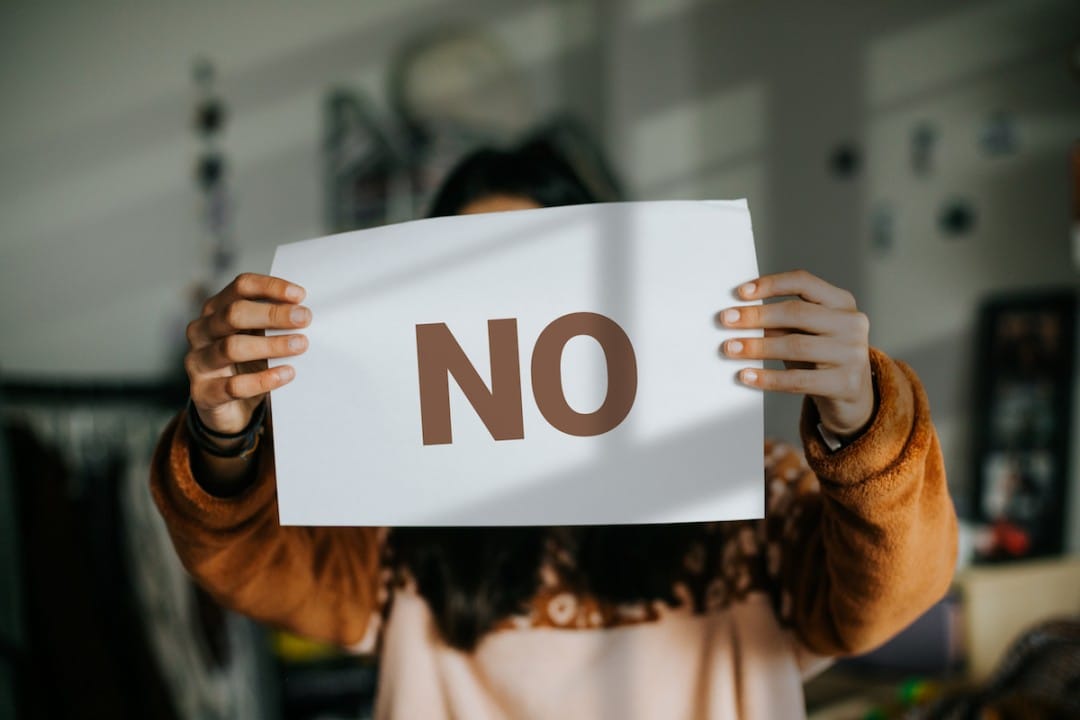The power of 'No': Setting boundaries without feeling guilty

The workplace of today is rife with opportunities, distractions, and demands, and it’s easy to get caught up in a whirlwind of endless “yeses.” But remember, each “yes” is a commitment, a piece of your precious time, and a potential source of stress.
in the fast-paced world of modern work, the ability to say “no” is an often underestimated superpower. It might sound counterintuitive, but mastering the art of “no” can be the key to achieving more, reducing stress, and boosting your career in ways you never imagined.
Understanding the ‘Yes’ culture
Before we delve into the significance of saying “NO”, let’s take a moment to acknowledge the prevailing ‘Yes’ culture in many workplaces. In our eagerness to please, impress, or simply avoid conflict, we often find ourselves nodding along to tasks and requests that might not align with our goals, capacity, or values. Saying “no” can be difficult, especially if we’re afraid of being rejected or causing conflict with our colleagues or managers. This fear can be especially strong in workplaces with a competitive or toxic culture. Perfectionists may feel like they have to say “yes” to everything to meet their high standards. However, this can lead to burnout and resentment in the long run. Remember, it’s okay to say “no” at work. It’s important to be able to say “no” to protect your well-being and productivity.
The importance of saying "No"
- If you have a constant pile of work that permeates your personal life, it is time to consider saying no more often.
- Accepting too many tasks can dilute the quality of work. Employees who spread themselves too thin may find it challenging to meet deadlines and maintain high standards. Saying "no" helps prioritise important tasks and allows for better concentration and higher-quality outcomes.
- Preventing Burnout Burnout is a state of emotional, physical, and mental exhaustion caused by prolonged stress. The World Health Organization (WHO) recognizes burnout as a significant workplace issue. By setting boundaries, employees can prevent burnout and maintain their enthusiasm and productivity at work.
How to say "No" effectively
- Be polite and respectful: Start by expressing your gratitude for the opportunity or request. Then, politely decline, explaining your reasons briefly and clearly.
- Offer alternatives: If possible, suggest alternatives or compromises that might help the situation. This shows that you’re invested in finding a solution.
- Stay firm but kind: Maintain a firm but kind tone throughout the conversation. Avoid over-apologising or making excuses.
- Practise active listening: If the requestor insists or seems disappointed, practise active listening. Acknowledge their perspective while reiterating your reasons for declining.
Overcoming the guilt of saying "No"
- Understand the Bigger Picture Saying "no" to additional tasks allows you to focus on your primary responsibilities and deliver better results. This benefits both you and your organization. By maintaining high performance in your core duties, you contribute more effectively to your team's success.
- Seek Support if you struggle with guilt, seek support from a mentor, supervisor, or counsellor. Tools like Manahverse can provide guidance and reassurance, helping you navigate the complexities of setting boundaries at work.
- Expect to feel guilty, and do it anyway. When the guilt comes, allow yourself those uncomfortable feelings. Cultivate a new wait-and-see approach. The guilt will tell you that if you put this new boundary in place, something bad will happen. But if you find the courage to take the step and watch what happens, the results will likely surprise you.
- Identify any unrealistic expectations. For many high performers, the pressure is self-created. You don’t have to answer emails or calls immediately. You don’t have to work on Sundays.
Real-life examples
- The Overworked Manager Sarah, a manager at a marketing firm, found herself constantly overwhelmed by requests from her team. She realized that saying "yes" to every task was unsustainable. Sarah began to prioritize her workload and set clear boundaries with her team. By doing so, she not only improved her mental health but also enhanced her team's efficiency by delegating tasks more effectively.
- The Junior Employee John, a junior employee, felt pressured to accept every task to prove his worth. However, this led to frequent mistakes and missed deadlines. After a discussion with his supervisor, John learned to say "no" when his plate was full. This allowed him to focus on his core responsibilities and improve the quality of his work.
Conclusion
Learning to say "no" is an essential skill in today's demanding work environment. It helps preserve mental health, maintain the quality of work, and prevent burnout. Remember, saying "no" is not about refusing to help; it is about ensuring you can contribute effectively and sustainably. Embrace the power of "no" and create a healthier, more productive work environment for yourself and your colleagues.
FAQs
How can I say "no" without offending my colleagues?
Be polite and respectful, offer alternatives if possible, and explain your reasons briefly and honestly.
What if my boss insists on adding more tasks despite my refusal?
Discuss your current workload and priorities with your boss. Highlight the potential impact on the quality of your work and negotiate deadlines or resources.
How can I overcome the fear of saying "no"?
Practice assertiveness, remind yourself of your limits and wellbeing, and seek support from mentors or colleagues who can provide reassurance and guidance.





